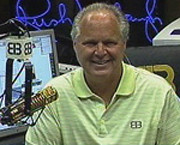When in doubt, fire the publicist (and then rehire them later). At least, that is what Paris Hilton might have us believe.
It was also the original thrust of her message when spoke publicly for the first time after being sentenced to 45 days in jail. At the hearing, Hilton said publicist Elliot Mintz told her she was permitted to drive for work-related reasons after the first 30 days of her license suspension. She also said she was unaware her driving privileges had been completely suspended.
"I told the truth," the heiress told photographers waiting outside her Los Angeles home on Saturday night. "I feel that I was treated unfairly and that the sentence is both cruel and unwarranted. I don't deserve this."
Hilton’s lawyer, Howard Weitzman, has planned an appeal in order "to modify the sentence." Weitzman said his client has been singled out and the punishment doesn't fit the crime. He's also the guy that Hilton should have turned to for legal advice regarding her driving privileges.
Although Mintz corroborated Hilton's story, offering "my sincerest apology for any misunderstanding she received from me regarding the terms of her probation," one wonders what degree of responsibility Hilton will accept. Perhaps it also draws the distinction between handlers and trusted advisors in the field of public relations.
Handlers are people who call the shots, sometimes trumping the judgment of their clients. Trusted advisors are more interested in helping clients work through decisions as they relate to public perception. The difference is subtle, but important.
Had Mintz acted as the trusted advisor, he might have suggested Hilton ask Weitzman about the terms of her probation, while suggesting that any infractions while driving could damage her credibility. Driving without lights certainly qualifies. But then again, that assumes the original story wasn't a spin.
Yesterday, Mintz told Us Weekly that, despite confirming the split himself in a statement over the weekend, “the rumors of our professional separation were over-exaggerated." Um, yeah, by Mintz.
What did Seth Godin say recently about going too far? In sum, if the second story doesn't hold up, the first story might be scrutinized even more. Very right.

It was also the original thrust of her message when spoke publicly for the first time after being sentenced to 45 days in jail. At the hearing, Hilton said publicist Elliot Mintz told her she was permitted to drive for work-related reasons after the first 30 days of her license suspension. She also said she was unaware her driving privileges had been completely suspended.
"I told the truth," the heiress told photographers waiting outside her Los Angeles home on Saturday night. "I feel that I was treated unfairly and that the sentence is both cruel and unwarranted. I don't deserve this."
Hilton’s lawyer, Howard Weitzman, has planned an appeal in order "to modify the sentence." Weitzman said his client has been singled out and the punishment doesn't fit the crime. He's also the guy that Hilton should have turned to for legal advice regarding her driving privileges.
Although Mintz corroborated Hilton's story, offering "my sincerest apology for any misunderstanding she received from me regarding the terms of her probation," one wonders what degree of responsibility Hilton will accept. Perhaps it also draws the distinction between handlers and trusted advisors in the field of public relations.
Handlers are people who call the shots, sometimes trumping the judgment of their clients. Trusted advisors are more interested in helping clients work through decisions as they relate to public perception. The difference is subtle, but important.
Had Mintz acted as the trusted advisor, he might have suggested Hilton ask Weitzman about the terms of her probation, while suggesting that any infractions while driving could damage her credibility. Driving without lights certainly qualifies. But then again, that assumes the original story wasn't a spin.
Yesterday, Mintz told Us Weekly that, despite confirming the split himself in a statement over the weekend, “the rumors of our professional separation were over-exaggerated." Um, yeah, by Mintz.
What did Seth Godin say recently about going too far? In sum, if the second story doesn't hold up, the first story might be scrutinized even more. Very right.



















